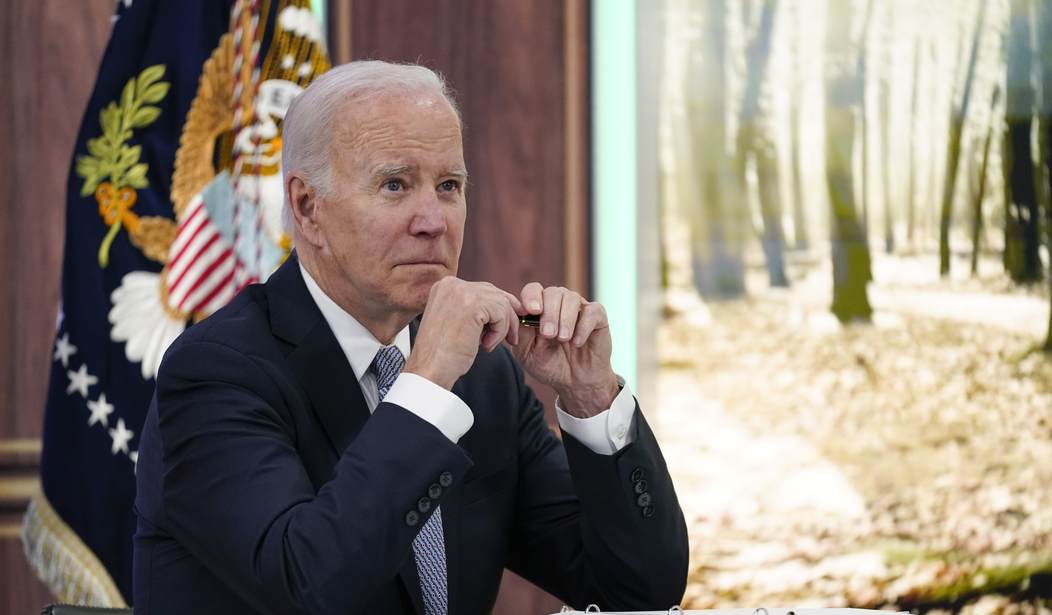Are we watching a replay of King Canute commanding the waves to recede? That thought occurred to me while reading about the Biden administration's latest step in advancing the president's 2021 goal of having half of all new autos be electric by 2030.
The analogy isn't exact -- current thinking is that Canute knew his courtiers were wrong when they said he could stop the incoming tide. And the king was apparently in his 30s, with no sign of cognitive impairment, at that moment by the seashore. But consider it anyway.
The analogy was prompted by the Environmental Protection Agency's order last week regulating tailpipe carbon dioxide emissions of model year 2027 to 2032 cars, SUVs and pickup trucks. It was clearly intended to force automakers to produce electric vehicles so that they'd account for two-thirds of sales in 2032 -- roughly 10 times the 6% share they accounted for in 2022.
White House climate adviser Ali Zaidi expresses confidence that "the ingenuity of American workers and American industry" can produce this enormous manufacturing and supply chain transformation -- all of which sounds like the courtiers' confidence that Canute could command the waves.
The head of the chief automakers' lobby is obviously skeptical. "Whether we have the necessary condition in the marketplace and in the industrial base," he told the Wall Street Journal, are "critical conditions that we need to continue to examine."
Among those conditions is whether automakers can procure the raw materials to produce so many electric vehicles. That includes, energy analyst and historian Daniel Yergin says, about two and a half times as much copper as gas-powered vehicles. That will be tough.
Recommended
Nearly half the world's copper is produced in politically unstable Peru and Chile. A big new mine opening in Mongolia is inconveniently landlocked between China and Russia. And car batteries require cobalt, some 70% of which is produced in the Democratic Republic of the Congo under working conditions you don't want to know about.
Then there's the little detail about where electric car owners are going to get the electricity to keep their vehicles going. There aren't many charging stations available now. Even if there were, America would need a lot more electricity than it generates now in order to power an electric vehicle fleet that large. And the U.S. electricity supply has actually been getting less reliable.
Thanks to environmentalists, America has been phasing out nuclear and coal-fired plants, which can reliably increase production to meet high demand. The nation depends increasingly on wind- and solar-produced electricity, which is only reliable when the wind is blowing and the sun is shining -- not all the time in most of North America.
By the way, the states with the biggest political support for renewables don't, unfortunately, have much reliable wind and sunshine. Current wind production is highest in the Great Plains, including Texas. Solar power provides only 16% of California's electricity, whereas hydropower is limited outside the Pacific Northwest.
And don't count on more power plants being built to accommodate all these electric vehicles. Progressives excel at using environmental lawsuits to stop new construction -- a point made recently by thoughtful young liberals such as the Atlantic's Derek Thompson ("we lag behind in actually building what we've invented") and the New York Timess Ezra Klein (who laments "an avalanche of well-meaning rules and standards that slow public projects in San Francisco -- and nationally"). This BANANA mindset ("build absolutely nothing anywhere near anyone") threatens to block the electric power plants, transmission lines and charging stations required for the huge increase in electric vehicles ordered by the Biden administration.
But will people buy those cars? Even with subsidies, electric vehicles cost more than gas-powered ones. It takes much longer to charge one than to fill a gas tank. Electric cars can turn into bricks if their batteries are drained by air conditioners or heaters, often needed almost everywhere in North America. As Axios' Josh Kraushaar reports, Gallup finds that only 12% of Americans want a new electric vehicle, and 41% say they'd never buy one. Pew finds that 55% oppose a 2035 phaseout of gas-powered cars.
"Complete decarbonization of the global economy by 2050 is now conceivable," the great historian of technology Vaclav Smil writes in his 2022 book "How the World Really Works," "only at the cost of unthinkable global economic retreat, or as a result of extraordinarily rapid transformations relying on near-miraculous technological advances."
It is looking like the Biden administration has set a goal that can only be achieved at exorbitant cost and over-determined resistance, which leads to the suspicion that the Biden administration issued the order, like King Canute's order to the waves, to propitiate a core constituency, expecting it to be overturned by the courts.

























Join the conversation as a VIP Member